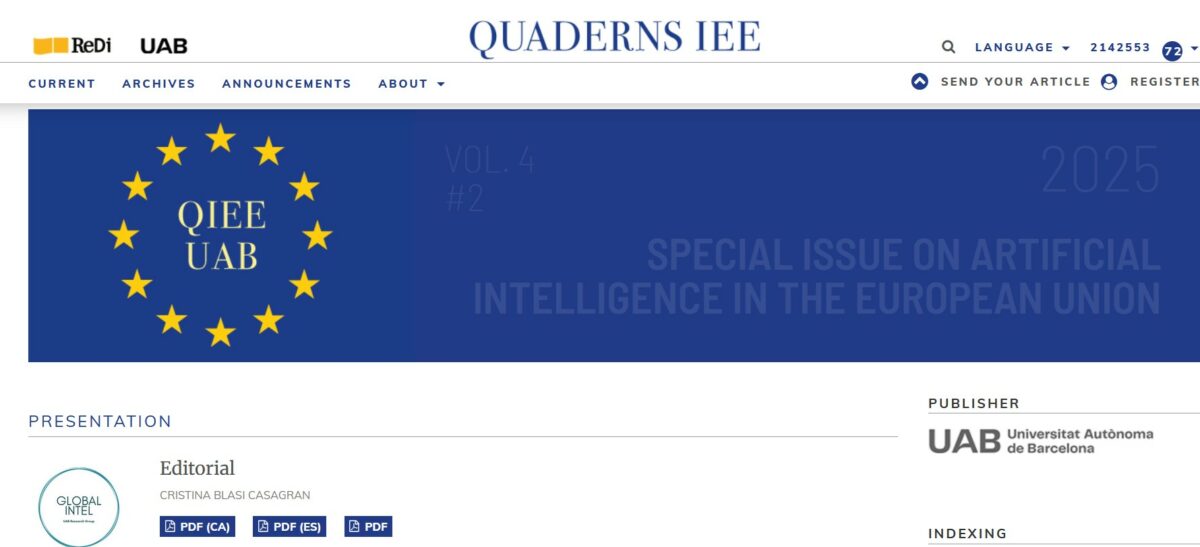We are very happy to announce the publication of the special issue on Artificial Intelligence in the EU at Quaderns IEE, that GLOBAL INTEL coordinated This issue brings together a selection of contributions presented at the TechAndLaw conference, held on October 3, 2024. The dossier offers a critical, plural, and interdisciplinary perspective on the EU’s role in AI governance, addressing the legal, ethical, and social issues raised by the deployment of this technology.
The monograph opens with an article by Linda Cottone, PhD, which analyzes the growing role of AI in European migration management and reflects on how algorithmic systems can affect the protection of human rights in contexts of vulnerability, offering a critical rereading of the balance between security, efficiency, and human dignity. Next, Susana Beltrán García delves into the issue of regulatory transparency, identifying persistent ambiguities and gaps in the European framework regarding the oversight of AI systems and their understandability tothe general public. Carles Grima Camps, in turn, examines the constitutional implications of AI use in digital content moderation, focusing on the dilemmas between freedom of expression and hate speech, with special attention to the case of antisemitism. Rute Silva Gomes, CIPP/E, CIPP/US’s article explores the rights of data subjects in the age of AI, questioning to what extent the right to rectification can effectively protect individuals against erroneous inferences generated by automated systems. The dossier concludes with contributions by Gloria Maria Sundblad and Ryan Salaya, who invite readers to explore an emerging horizon in the digital rights debate: neuro-rights. Their article raises fundamental questions about how to protect mental privacy and cognitive freedom in a technological environment marked by the rapid advancement of neurodigital technologies. We hope this special issue contributes to fostering a critical and informed reflection on the paths the EU is taking in the field of artificial intelligence, and opens up new spaces for academic, legal, and political debate in an area that will be decisive for Europe’s future.
